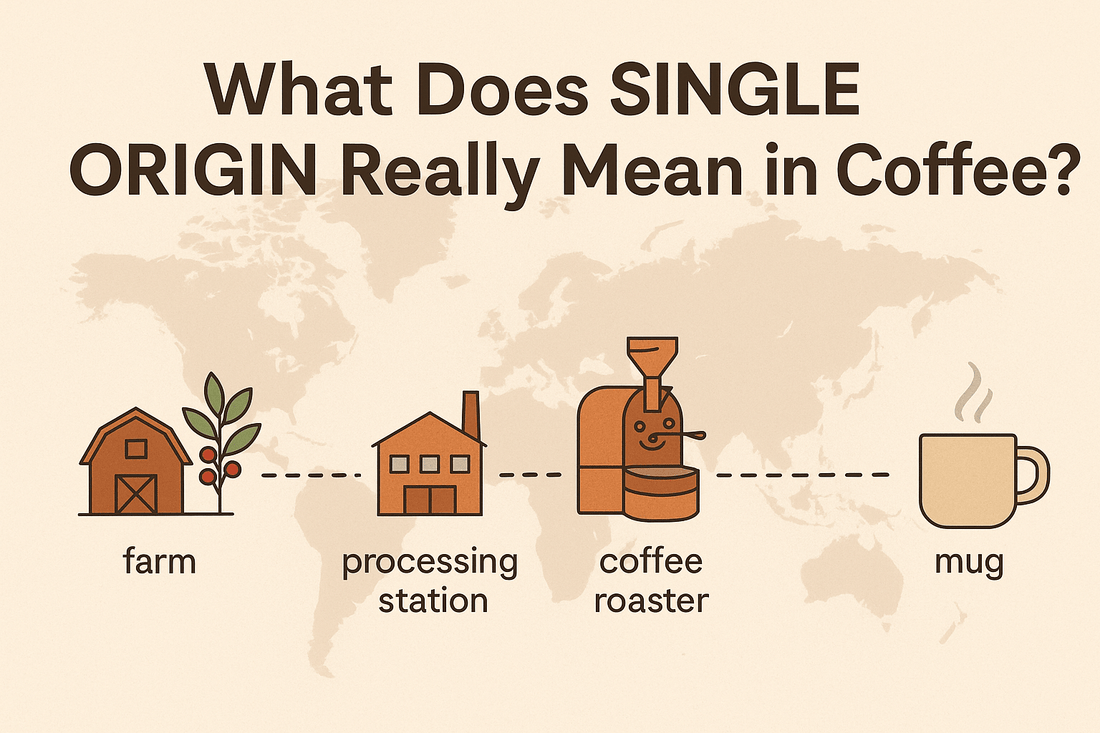
What Does Single Origin Really Mean in Coffee?
What Does Single Origin Really Mean in Coffee?
When you hear the term single origin on a coffee label, what does it actually mean? Is it a fancy way of saying “better beans”? Does it matter if your coffee comes from one farm—or many? Let’s break it down.
The Basics
At its simplest, single origin means the coffee comes from one place. That place can vary in size:
-
A country (like Peru or Mexico)
-
A region within a country (like Chiapas, Mexico)
-
A specific farm or cooperative
When a bag says Peru – Single Origin, it tells you all the beans inside come from Peru. If it says something even more specific, like Finca La Esperanza, Peru, it means all the beans were grown on that one farm.
Why It Matters
Coffee, like wine, takes on the flavors of its environment—soil, climate, altitude, and farming methods. This is called terroir. With single origin coffee, you can really taste the character of the place where it was grown. It’s a bit like drinking a postcard from that region.
Some typical benefits of single origin coffee:
-
Distinct flavors: Each origin has unique tasting notes—like chocolatey and nutty from Central America or fruity and floral from East Africa.
-
Transparency: It’s easier to trace where your coffee came from.
-
Seasonality: These coffees are often available in small batches and may rotate throughout the year.
Not the Same as a Blend
Single origin is not the same as a blend. Blended coffees mix beans from different places to create a consistent or complex flavor. There’s nothing wrong with blends—in fact, we love them too! But single origin lets you explore coffee one place at a time.
So, Is Single Origin Better?
Not necessarily—it’s just different. Single origin coffee is about experiencing flavor in a pure, unblended form. If you're curious about where your coffee comes from and what it says about the land and people behind it, single origin is worth exploring.
